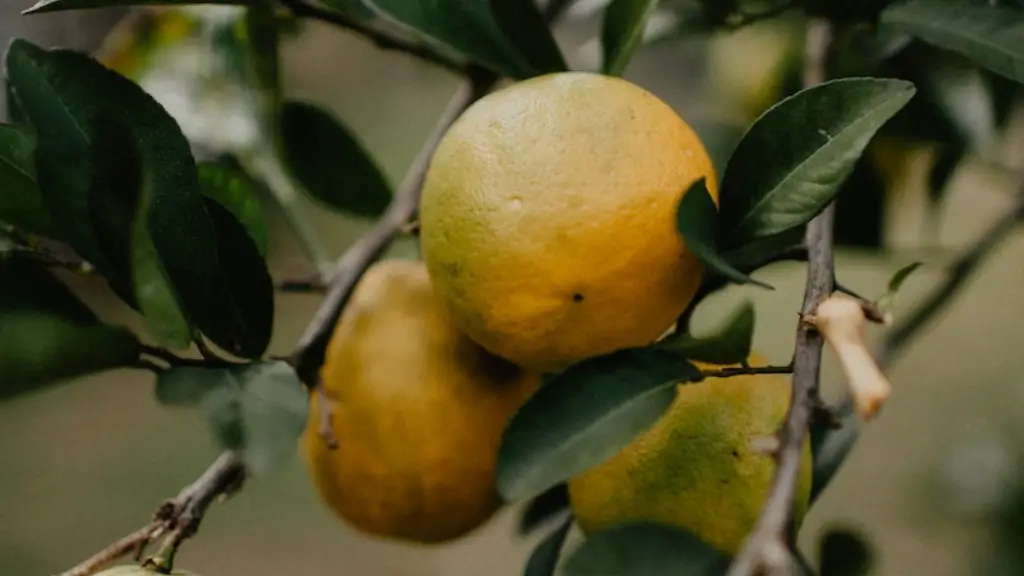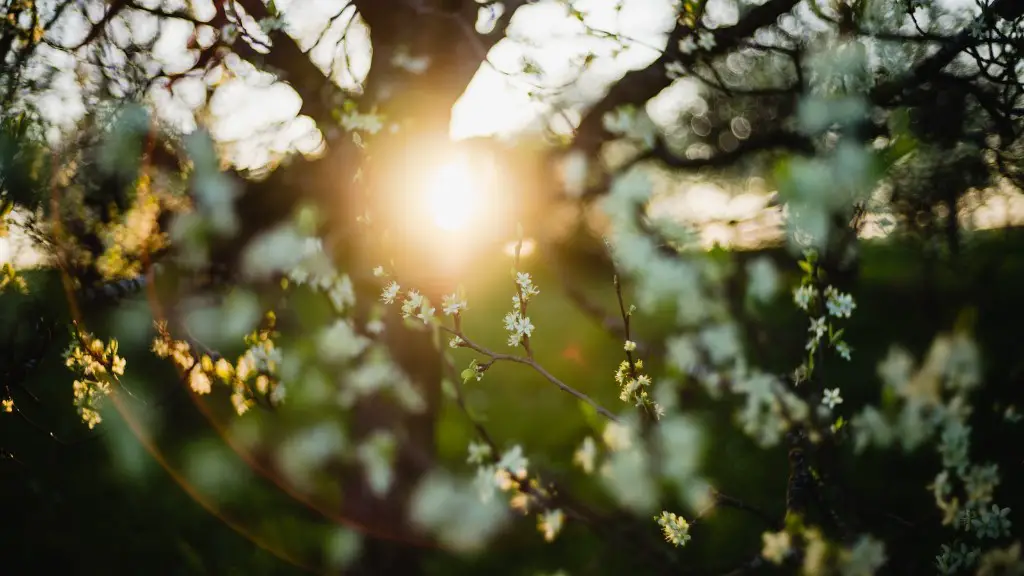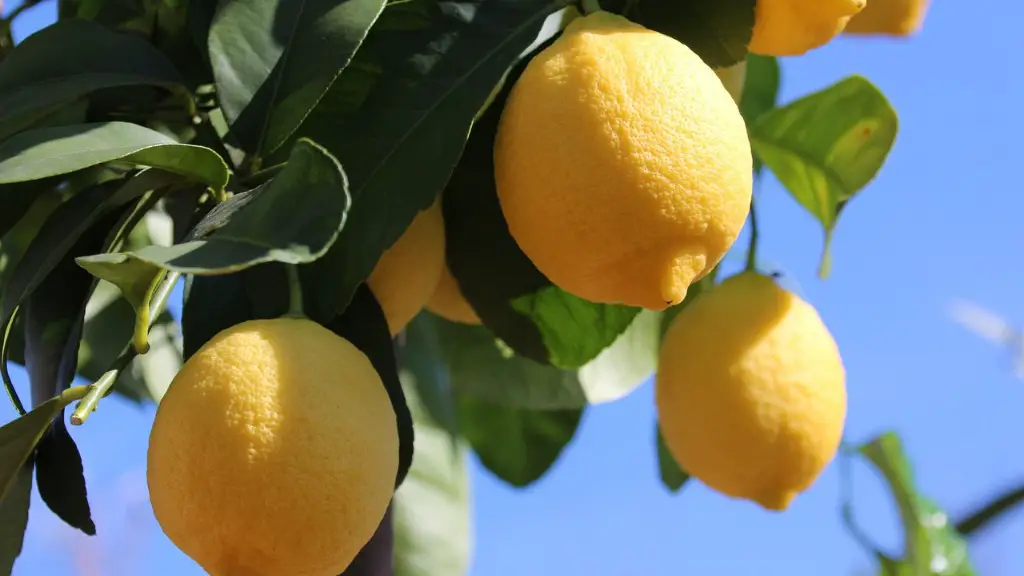Can you grow a lemon tree in the UK? The answer is a resounding yes – and with a few simple steps, anyone can be successful at cultivating a lemon tree in their own British back garden.
Firstly, it’s important to understand the kind of climate UK gardeners are likely to be working in. Temperatures are usually mild and, depending on where the tree is planted, can be humid or dry. The plant will require protection from any potential hard frosts, and good drainage is essential for healthy growth.
Choosing the right variety is also key. Meyer lemons are considered best for UK gardeners, as they tend to produce fruit in cooler climates and don’t need artificial heats as do other varieties. The tendency of Meyer lemons to flower and fruit in autumn and winter make them an excellent option for gardeners in the UK.
The next step is preparing the soil prior to planting. If planting in a pot, use a soil-free potting compost, adding some well-rotted garden compost to soil already in the ground. Creating a slight mound of soil to provide the root area with good drainage is also advised.
Planting the tree is the final stage before looking after the tree on an ongoing basis. Once this is done, ensure the root-ball is well watered then add mulch to stop the soil from drying out. Lemon trees benefit from regular feeding with high potassium fertilizer, and regular monitoring for pests will also be necessary.
Repotting and Training
A period of repotting and training is often needed for indoor lemon trees, or those planted in pots. Repotting your tree every few years will ensure the roots are not restricted by the size of the pot, usually moving up one pot size each time.
Lemon trees can often become lopsided, which can affect the amount of fruits it produces. Training is important to keep a balanced shape that will allow optimum levels of sunlight to reach all parts of the tree.
With the aid of stakes, ties and string, light pruning is used to reduce density and shape the tree as desired. This should be done with care, since overpruning can damage or delay fruiting time.
Watering should be done regularly, but it is particularly important when the tree is in fruit. It is also important to liquid feed with a balanced fertilizer such as tomato food on a bi-monthly basis, as this will provide essential nutrients and promote flowering and fruiting.
Pruning and Disease
Pruning is important for regular lemon trees, as it encourages the tree to produce larger, juicier fruits. This should be done in autumn and winter, while actively growing trees may require more frequent attention.
The common diseases affecting lemon trees in the UK should also be kept in check. Most of these can be easily treated with sprays or systemic fungicides.
Pests are usually less of a problem than with other fruit trees, but there are still a few to keep an eye out for. Slugs and snails can cause damage to the fruits, stems and leaves, and ants can also be unwelcome guests.
In order to counter these pests, barriers or traps can be used. These are usually cheap and effective, though chemical insecticides and nematodes can also be used for more serious infestations.
Harvesting and Maintenance
Harvesting lemons can vary depending on the variety – some can be picked all year while others will require a bit more patience to allow the fruits to fully mature.
Good maintenance is important to keep the tree healthy over the years, and includes checking that the soil is kept moist and free of pests and weeds. Regular pruning, fertilizing and watering also helps the tree to fruit maximally.
Ultimately, lemons can be successfully grown in the UK if a few basic steps are followed. With the right variety and a bit of care and attention, gardeners can enjoy the pleasure of harvesting homegrown lemons for years to come.
Winter Care
Winter care is important for lemon trees in the UK, as hard frosts and cold weather can affect the tree. Mature trees should be covered with fleece or matting in cold weather, and late frosts can also be covered up if needed.
Regular monitoring for pests and diseases should also be carried out, as winter weather can create an environment for viruses and blights to thrive. Regular pruning to keep your tree in a balanced shape will also be necessary during this season.
Fertilizing should also be done carefully in winter, as the tree isn’t actively growing during this season. Fertilizers with a high potassium and mineral content are best, and necessary to produce healthy, flowering lemons in the new season.
Watering and Feeding
Watering is important throughout the year, and will depend on the weather and soil type. Plants in pots are more at risk of drying out, with water being given ½–1 inch per week if no rain has fallen for the same length of time. Soil should also be checked to ensure it not too wet or dry.
Feeding should be done regularly and in accordance with the different stages of the growing season. Liquid feed with a balanced fertilizer such as tomato food is recommended, and can be given at a rate of about 10g per 10 liters of water. A slow-release fertilizer or organic alternative can work just as well.
Trace elements such as magnesium, copper, manganese and iron are also important to consider. Soil tests can be done to determine the balance of these elements, and fertilizers can be applied if necessary.
Sunlight and Airflow
Lemon trees thrive in the right level of sunlight, and should be placed in a spot where they get a few hours of bright, direct sunlight each day – more if required by the particular type of tree. Too much direct sunlight, however, can actually be damaging, and young plants should be shielded from hot midday sun to prevent wilting.
Good airflow around the tree is also important for its health, and ventilation holes can be added in summer to ensure plenty of air passes the leaves. This will help get rid of any heat that can potentially build up, and also reduce the risk of problems with mildew and rust.





